
You’re sleepy all day
If you’re tired 24/7, don’t just chalk it up to a busy life. “A lot of people feel tired, but don’t know why and attribute it to lack of sleep, among other things,” says Boris Chernobilsky, MD, director of sleep and airway surgery at Mount Sinai Beth Israel in New York City. Daytime sleepiness is one of the most common sleep apnea symptoms, but men with sleep apnea tend to report daytime sleepiness more often than women, says Dr. Chernobilsky. (Learn the truth about why men sleep better than women.) Both obstructive sleep apnea (muscles relax during sleep, causing soft tissue in the back of the throat to collapse and block the airway) and central sleep apnea (the brain fails to signal your body to breathe) lead to disrupted sleep. Patients wake up frequently throughout the night but they don’t always remember it. They just feel sleepy all day.
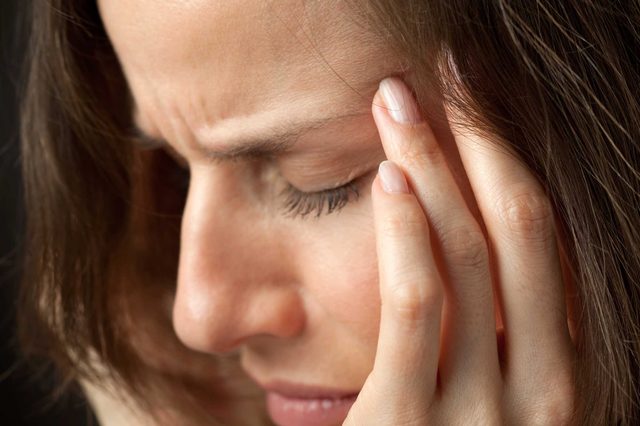
You wake up with a headache
If you start each day with a pounding head (and didn’t have one too many beers the night before), lack of sleep caused by sleep apnea might be to blame. Even if you did get the recommended seven to eight hours, sleep apnea disrupts your sleep. (For a good night’s rest, these high-tech Bose Noise-Masking Sleepbuds are worth trying.) Shockingly, people with severe sleep apnea can awaken hundreds of times each night, according to the Stanford Center for Sleep Sciences and Medicine.
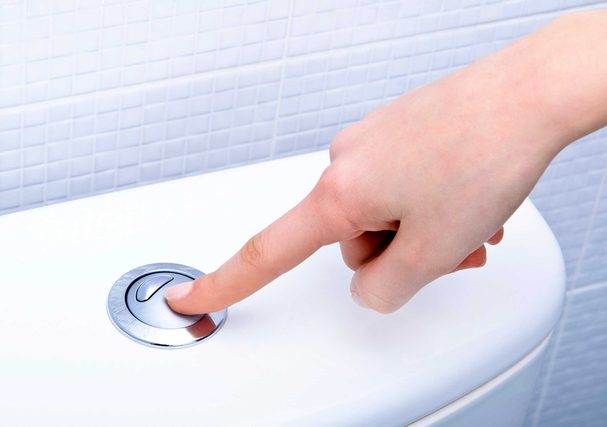
More nighttime trips to the bathroom
“Many people wake up in the middle of the night and don’t know why, so they’ll think maybe it’s because they need to pee,” says Dr. Chernobilsky. Though that may sometimes be the case, many patients are just searching for the reason they’re awake and don’t actually have the urge to go, he says.
Ever tried yoga before bed? These 6 soothing poses will help you sleep better.
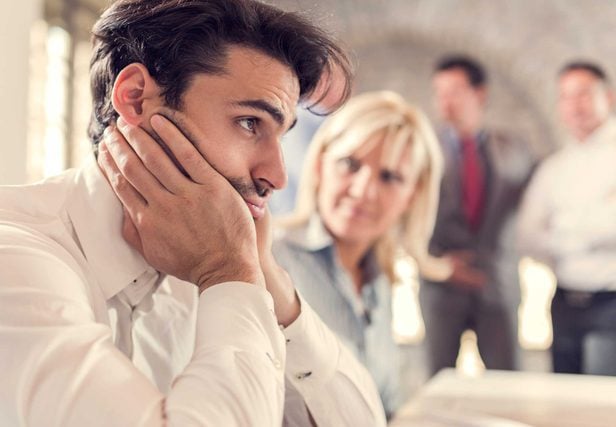
You’re irritable or have mood changes
Lack of sleep may be the reason for your newfound irritability, not the fact that you have a case of the Mondays. Changes in mood, as well as increased stress and anxiety, can be one of many sleep apnea symptoms; studies have shown that people who don’t get enough sleep report feeling more stressed, angry, sad, and mentally exhausted, according to the Division of Sleep Medicine at Harvard Medical School. (If you’re suffering from anxiety, here’s how to better manage your triggers.)
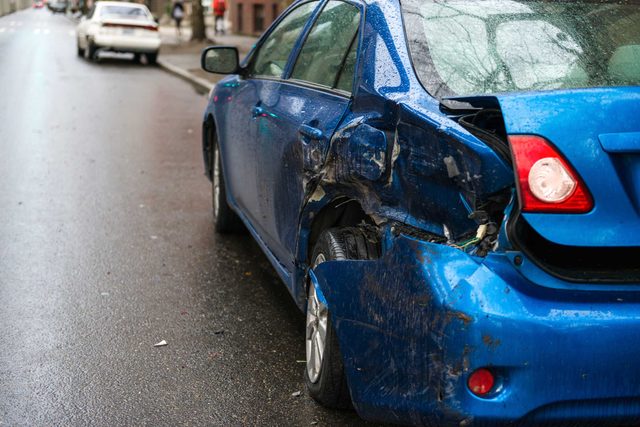
Your driving is getting worse
“One of the biggest signs of sleep apnea is car accidents,” says Dr. Chernobilsky. In fact, a 2015 study in the journal Sleep found that people with sleep apnea were 2.5 times more likely to be the driver in a car crash than people without the disorder. Researchers said in a news release that extreme daytime sleepiness and getting less than five hours of shut-eye were to blame for the dangerous distracted driving. In the same study, car accidents were reduced by 70 percent among sleep apnea participants who used the common treatment of continuous positive airway pressure (CPAP) therapy at night. But before you resort to CPAP therapy, you may want to try these sleep products first.
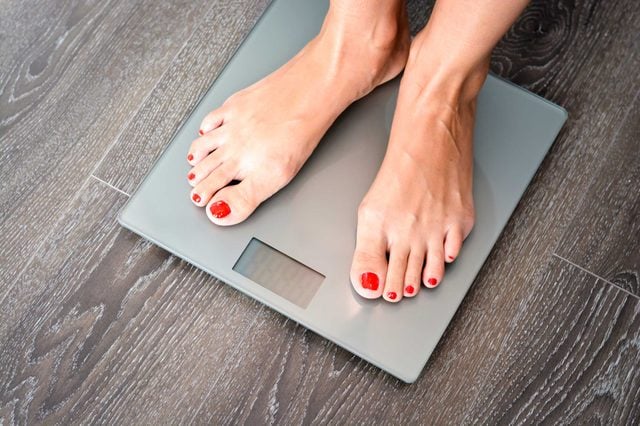
Weight gain for no apparent reason
While you’re snoozing away, your hormones are hard at work, with those that regulate hunger functioning at very specific times throughout your sleep cycle. “When you disturb the natural circadian rhythm, some hormones don’t reach their peaks or get released at all,” says Dr. Chernobilsky. That means you may feel hungrier throughout the day and even become more insulin resistant, he says, which can eventually lead to diabetes. Learn more about what your sleep habits reveal about your health.
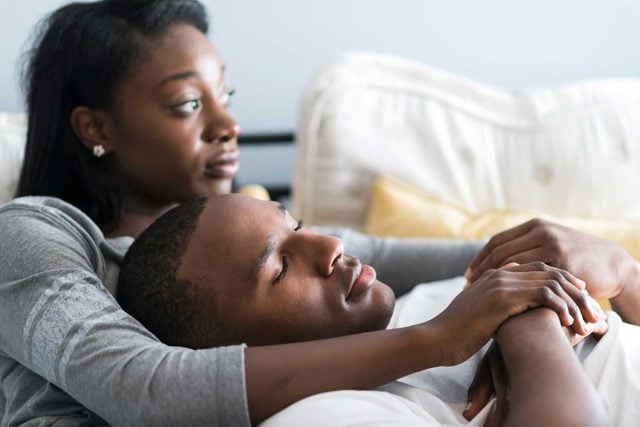
Trouble being intimate
“Impotence is a big sleep apnea sign for men. Many blame it on low testosterone or stress, but sleep apnea can be the cause,” says Dr. Chernobilsky. Studies have found that people with erectile dysfunction are more than twice as likely to have sleep apnea than people without erectile dysfunction, according to the National Sleep Foundation. Poor sleep and irregular sleep patterns are to blame. Find out how much sex you should be having to improve your sleep.
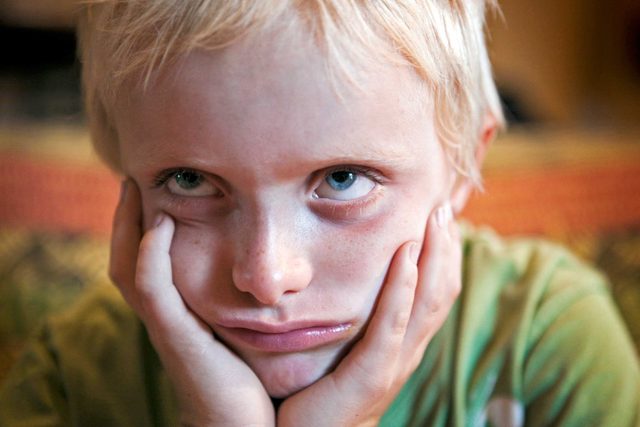
Your kid is acting up
Sleep apnea strikes children too. And behavioural issues such as misbehaving at school, a poor attention span, and a drop in grades might be sleep apnea symptoms, says Dr. Chernobilsky. “Sleep apnea in kids can present as hyper, irritable, or falling asleep in class, and some parents get a misdiagnosis of attention deficit disorder [ADD],” he says. (These 13 strange things could explain your sleep troubles.)
A 2015 review of 16 studies related to sleep apnea in children, published in Pediatrics, found that those with sleep apnea performed worse on language arts, math, and science tests compared to those without.
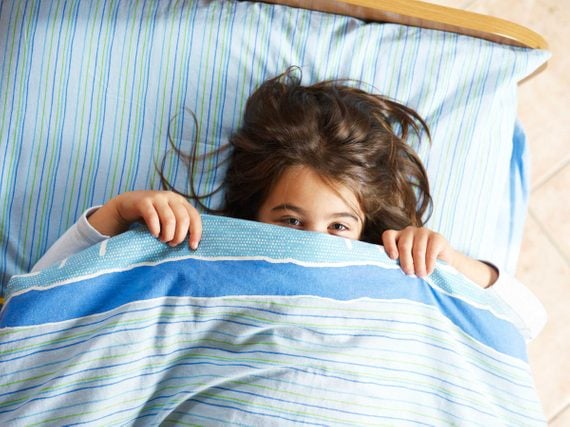
Your child wets the bed
If your child was potty trained but starts to wet the bed again, consider talking to their doctor about possible sleep apnea, says Dr. Chernobilsky. “When their breathing is disturbed, oxygen levels drop, which makes them lose bladder function,” he says. Next, take a look at how these 3 yoga techniques can help improve your sleep.
